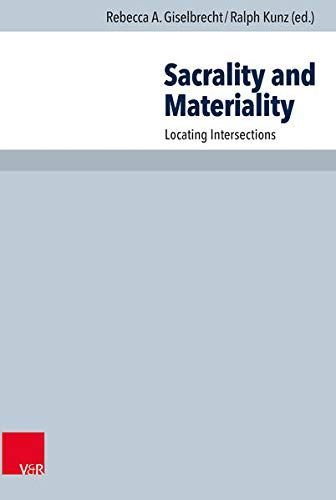
Sacrality and Materiality Locating Intersections
Christian theology traditionally regards the sacramental as the polar opposite of the profane. The polarity is a memorial of contemporary desacralization, profanization, and sacralization that stands as a portal to the story of modern reality. In our liminal space, we neither de-sacralize our environs nor re-sacralize the world. The lines are blurred and our perception of spirituality is neither immanent nor transcendent. While words fail to articulate the condition, stories are told and tales of experiences come together to form new theoretical nets, systems and categories.The conference volume, "Sacrality and Materiality: Locating Intersections" seeks to reply to the questions: Where does the sacred intersect with the material? What happens when they meet? First, however, does the sacral even exist? Would it be more productive to ignite sacramental discourse at the intersections of a new matrix? Historically, materiality is other than spirituality- an intersection of the two is an intangible event of the intellect and spirit. We must engage a bipolar setting in the context of its own history in order to speak about the unspeakable. Despite that spirituality and materiality refuse to assume the categories assigned to the initial polarities of sacrality and profanity, the volume addresses the constrictions. Sacral materialism and sacral spiritualism both exist in their own right, and Christian theology has more to offer than polarities. The sacral is the meeting point for the fission of thought.Is the sacramental a topos for telling a postmodern story of spiritual experience? Is Evangelical sacramental theology relevant? Does theological talk about holy materiality belong in denominational and inter-religious dialogue? "Sacrality and Materiality: Locating Intersections" inaugurates a dialogue about these issues.